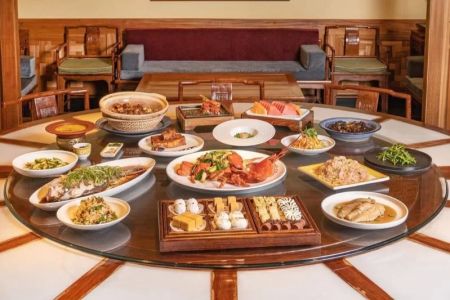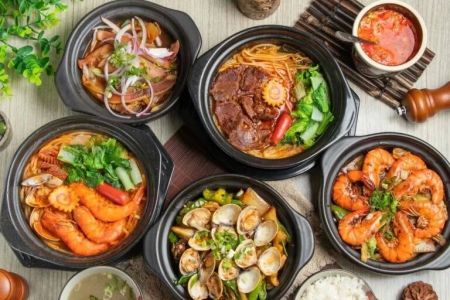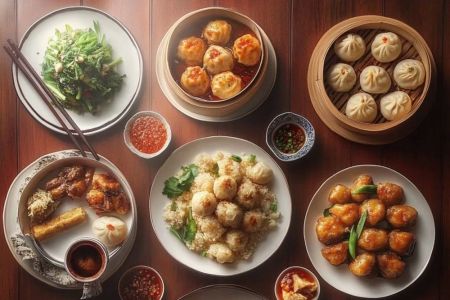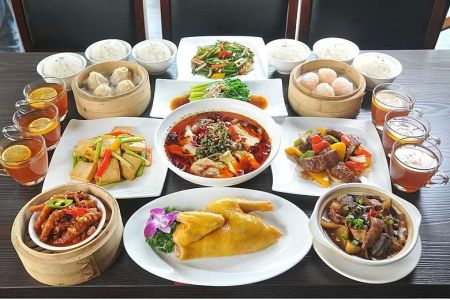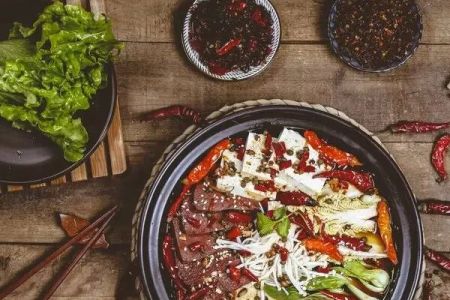Why Do Chinese Restaurants Have Japanese Cat Figures?
If you've ever dined at a Chinese restaurant, you might have noticed a curious sight—a small, often golden cat statue with one raised paw, sitting on a counter or near the entrance. You might have assumed it was just part of the decor, but have you ever wondered what this cat symbolized or why it’s there? Interestingly, this figure, known as the "Maneki Neko" or "lucky cat," actually originates from Japan, not China. Yet, it has become a popular feature in many Chinese restaurants worldwide. In this article, I'll dive into the cultural significance of the Maneki Neko and explain why it’s found in so many Chinese eateries.
The Origins of the Maneki Neko
While it might seem unusual to see a Japanese icon in a Chinese restaurant, the Maneki Neko has a fascinating history that connects it to good fortune, which transcends national borders. The origins of the Maneki Neko trace back to Japan, where it has been a symbol of luck and prosperity for centuries. The figure itself is typically depicted as a cat with one paw raised in a beckoning gesture, often holding a koban (a traditional Japanese coin) in its other paw, which represents wealth.
There are many stories about the Maneki Neko’s origins, but one of the most popular legends tells of a poor temple priest in Japan who had a cat that would wave its paw toward passing travelers. The cat's actions were thought to bring good fortune, and soon, the priest’s temple saw an influx of visitors, bringing prosperity to the temple. The story of this cat spread, and the figure became known as the "Maneki Neko," or "beckoning cat," symbolizing good luck and wealth.
The Maneki Neko’s Symbolism
In Japanese culture, the Maneki Neko is often associated with bringing good fortune, prosperity, and happiness. It’s commonly displayed in businesses, particularly in shops, restaurants, and other establishments, where it's believed to attract customers and financial success. The raised paw of the cat is thought to beckon customers in, symbolizing hospitality and fortune. The golden color often seen on these cats represents wealth, and some versions of the statue are even adorned with coins, further reinforcing the idea of financial prosperity.
Why Chinese Restaurants Embrace the Maneki Neko
So, why do we find this iconic Japanese figure in Chinese restaurants? While the cat is Japanese in origin, the symbolic meanings of prosperity, good fortune, and wealth align well with the values of Chinese culture, especially in business. In Chinese culture, the concept of "fu" (fortune or good luck) is extremely important, and various symbols and charms are often used to attract positive energy and success. The Maneki Neko, with its reputation for bringing good luck and financial prosperity, is a perfect match for Chinese restaurant owners who hope to attract customers and boost business.
A Global Influence on Restaurant Decor
Over time, as Chinese restaurants spread around the world, they often adopted certain elements of decor that resonated with customers from various cultural backgrounds. The inclusion of the Maneki Neko became a way to not only attract Chinese customers who value prosperity but also Japanese, and even Western, diners who are familiar with the lucky cat’s symbolism. In fact, it’s not uncommon to see the Maneki Neko in Chinese restaurants in other countries, particularly in the United States, where Chinese food has become deeply embedded in the cultural fabric. The cat has become more than just a decoration; it’s a part of the global appeal and charm of Chinese restaurants.
The Role of Cultural Cross-Pollination
What’s interesting is how cultural symbols often transcend their origins and take on new meanings in different contexts. While the Maneki Neko originates from Japan, its widespread use in Chinese restaurants can be seen as an example of cultural cross-pollination. In many cases, the figure has become so closely associated with Chinese dining experiences that many people now mistakenly believe it to be Chinese. The adoption of the Maneki Neko by Chinese restaurants is a prime example of how different cultural symbols can blend together, creating a unique and harmonious environment that appeals to people of various backgrounds.
Real-Life Examples: Maneki Neko in Popular Chinese Restaurants
During my own visits to Chinese restaurants, I’ve often found the presence of the Maneki Neko a welcoming and charming touch. I recall one specific visit to a small, family-owned Chinese restaurant in San Francisco. As I walked in, I was greeted by a row of Maneki Neko statues sitting on the windowsill. The restaurant was bustling with activity, and there was a sense of warmth and good fortune in the air. I later spoke with the owner, who explained that they placed the lucky cat in the restaurant because it was said to attract prosperity and good fortune. Their reasoning was simple: having a positive and inviting atmosphere would encourage customers to return, which ultimately boosts business.
The Cultural Impact of the Maneki Neko
As I dug deeper into the symbolism behind the Maneki Neko, I realized that the cat has become more than just a lucky charm for Chinese restaurants; it has become a universal symbol of prosperity. Its presence has been so widely adopted in various businesses—especially restaurants—that it now signifies an international desire for success and good fortune. Whether you're in a Chinese, Japanese, or even a Vietnamese restaurant, you may come across the Maneki Neko, and its charm will likely make you feel a sense of welcoming and hope for a good meal and prosperous future.
Is There a Difference Between the Maneki Neko in Japanese and Chinese Culture?
While the Maneki Neko holds a similar significance in both Japanese and Chinese cultures, the way it’s used and displayed can vary. In Japan, the cat is often seen with specific colors and accessories, such as a red collar and a koban coin, each symbolizing a different type of good fortune. In Chinese restaurants, the cat may sometimes be displayed in a more neutral form, with the focus primarily on the cat's welcoming gesture rather than the cultural details that are prominent in Japanese traditions.
Despite these differences, the core symbolism remains the same: the cat is a beacon of prosperity, good fortune, and hospitality. It serves as a reminder that no matter where you are in the world, good luck can be just around the corner—and sometimes, it comes in the form of a friendly cat waving from the counter of your favorite Chinese restaurant.


